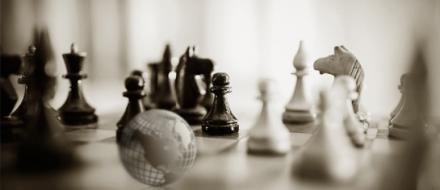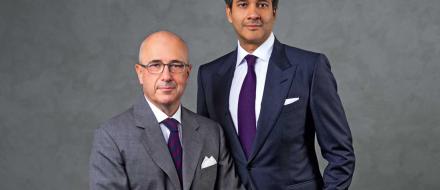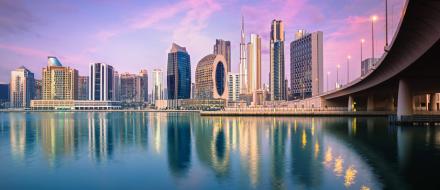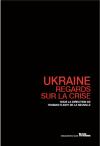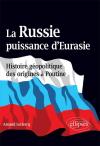Russia's Eurasian horizons
ABSTRACT
The place and role of Russia in the world of XXI century remains controversial discussion point among political scientists, economists, sociologists, and historians. What should seek the Russian state - to become a regional or global power? Does Russia still need to align itself with Western values or maybe in the East there are more profitable acquisitions lying in wait for Russia? What role in the modern development of Russia play its rich natural resources and human potential? Do the traditional geopolitical factors preserve their role in today's world where "soft power" is gaining even greater influence?
The author of the piece - a famous Swiss financier - brings together economic and geopolitical factors, and presents to the reader a picture of modern Russia which has a unique geostrategic position of Eurasian power.
During the last twenty years we witnessed the collapse of the Soviet Union and establishment of the modern Russian state that one not so long ago could think was under threat to be drawn into terrible political, economic and social crises caused by the events of 1991. Absolutely unevident till the turn of 2000, such revival created a new situation when Russia, consolidated inside its borders, managed to regain its weight and influence in the international concert. The renaissance of Russia as a power fits into the general context of rather unexpected emergence of multipolar world taking into account the prospects that the end of the cold war opened for the Benevolent Empire of George Bush and the fact that Professor of Harvard University Francis Fukuyama prophesied the "end of History" with a universal triumph of Western-type democracy and generic establishment of market economy.
Putting aside all comments on the internal situation in Russia with its corruption and aspects related to human rights, it should nevertheless be recognized that the achieved international revival became possible, to the great extent, due to the authority and abilities of Vladimir Putin. He managed to mobilize around himself the new elites determined to make the modernization of the country a success without sacrificing at the same time their ambitions to power.
Having gone through Peter the Great's westernization, reforms by Alexander II and Soviet revolutionary projects, on the eve of the XXI century, Russia that faced relative failures throughout its history has probably entered the context that may appear favorable provided that Russia knows how to play its numerous trump cards in this new history episode.
The renewed Russia's identity does not rule out its proximity to Europe towards which, as it was the case in the times of Peter the Great, Russia is still moving although the European Union, attached to the Atlantic Bloc, gave it on numerous occasions reasons for disappointment.
GRAVITY CENTER SHOULD SHIFT TO ASIA
Leaving aside for a while Europe, it is important to note that the gravity center of Russia is shifting today to Asia. Historically, the West practically permanently posed threats to Russia's interests and security while the East was rather easy to gain, and enormous Asian territories were preserved despite the downfall of the tsar empire and disappearance of the Soviet Union. In modern times, the proposal of Mikhail Gorbachev to create a Common Home was turned down by Europe. The support provided by Vladimir Putin to the United States after the September 11 events was reimbursed by the increased American influence in the "near abroad" either through the so-called spontaneous "color revolutions" or plans to deploy missile defense systems in Poland and Czech Republic in order to protect them from some theoretical aggression coming from Iran. Except the reinforced partnership with Germany and France when it was headed by Sarkozy, Russia was generally disappointed by the West. Moreover, the crisis that was generated by American loans plunged the European economies into the recession that risked to result in the depression and collapse of Euro zone. Why after that Russia should have interest to keep looking towards Europe?
In parallel, the Asian Pacific zone does not create any problems for Russia there is no criticism of human rights violation nor missile defense nor "color revolutions" but instead the strengthened diplomatic, economic and military cooperation. Provided that the challenges of infrastructure modernization, exploration and exploitation are addressed regardless the remaining difficulties, the volume of energy resources can become in the mid-term prospect the best trump card because Russia will find itself in the situation when it will supply gas and oil to Europe and Middle East - two populated and dynamic areas where Russia's resources are badly needed. These resources must give Russia means to develop and modernize its communication lines, railways, roads and air routes indispensable for managing the territory of exceptional dimensions.
During the APEC (Asia-Pacific Economic Cooperation) summit in Vladivostok in September 2012 Russia announced to triple its oil supplies to Asia during the next decade. In 2020, energy consumption of Japan, South Korea and China will be 50% of the world energy consumption. Moreover, after the catastrophe at Fukushima Japan decided to abandon almost totally its nuclear power capacity and therefore, has to turn to the Russian supplier while the European demand should face stagnation. It is important to note that the price of gas sold to Asia is practically equivalent to oil prices, which is two times less than the price proposed to the Western Europe.
RUSSIA, EUROASIAN POWER
The Eurasian position of the country is a considerable geo-strategic advantage that makes Russia and its provinces the obligatory passage way of the new continental "Silk Road" that risks to replace in middle term the commercial sea routes controlled by American thalassocracy. In 2001, Russia made considerable investments to its road and railway infrastructure. As for the sea routes, the forecast climate change that is commonly considered as a threat, for Russia, on the contrary, may be beneficial. New prospects in the Arctic, in particular oil and gas exploration as well as disclosure of the inconceivable sea route that now opens an ocean space for Russia who has been a prisoner of its continentality for a long time, evidently promise positive consequences. The mass media now constantly refer to the energy potential of Arctic regardless the enormous difficulties caused by the climate as it was demonstrated by the drop of the giant Shtokman project. At the same time, according to the 2008 study by the US Geological Institute the Arctic Circle contains 13% of the world oil reserves and 30% of natural gas.
HUMAN RESOURCES
Among necessary pre-requisites of Russia's return one seems to be still not fulfilled: the demographic development of the country. The maternity support measures announced by the government have not justified hopes although have brought sensible improvements.
On the contrary, the resistance capabilities of the educational system of Russia appear to be a benefit inherited from the Soviet era when speaking about preserving Russia's role in areas like space industry, military and industrial complex, nanotechnologies. After the times when certain oligarchs brought up by the former communist system wasted the country's resources for the sake of privatization, the State managed to regain control over the resources giving it capacities to exercise its power. However, it is only with help of different and supplementary groups - not only the siloviki group coming from the "services" - that today's leaders of the country will be able to restore its governing elites capable of ruling efficiently for a long time and addressing the problem of corruption. Exactly like Peter the Great and Catherine II, President Vladimir Putin and Prime-Minister Dmitry Medvedev could invite some highlevel foreign experts to help managing financial institutions or major public enterprises, in particular dealing with foreign trade, and improve the perception of Russia among Western decision-makers.
This is a necessary measure if Russia wants to prevent the outflow of its elites at the time when the world's most dynamic economic poles try to attract the best brains and holders of most sophisticated know-how's.
NEW SPACES
The renaissance of Russia also occurs through the management of spaces in terms of geography, policy and economy; it was the discovery of tsar and Soviet empires and it remains today a major advantage. For today's Russia it implies the improvement of its transport such as trains, roads and planes; regardless the reduction of sea gates after the end of the USSR the announced climate change can open unprecedented ocean spaces through the Arctic Ocean. For the West it is difficult to imagine the range of changes at the beginning of 1990s when Russia became open. As a result, the whole geographic economy has gone through transformations and most of the industrial regions inherited from the Soviet Union revealed their weaknesses. A considerable adaptation effort should be made, and even if the Center organized around Moscow seems to be able to successively address the challenges of rapid modernization, the evolution will be apparently less fast in other regions where serious burdens remain. Along with the construction of the new Russian economy that cannot reduce itself solely to the exploitation of the energy and raw materials, the State will become capable of exercising considerable international influence.
With many advantages in stock, Russia sums up the big bets of the beginning of XXI century and has to find its place in the new emerging balance of power. It has to redefine and reaffirm its specific identity in the world where the claims of the West to universality are threatened. It is among the states that can benefit from the announced climate change even if the latter is considered a danger at the level of planet. In the world where the energy consumption will grow and which will have to feed its rapidly growing population, Russia's resources will allow it to take an advantageous place for exercising influence in different areas. With its Euro-Siberian location - its resources and favorable geostrategic position - Russia preserves its identity while remaining open to Europe. It is destined to regain its place of the major power but probably also to face in the future the Chinese threat hanging over the Russian Far East or Chinese dominance in Central Asia. One can definitely argue that Russia has never been as strong as it is when viewing itself not only as a West-oriented European power.





